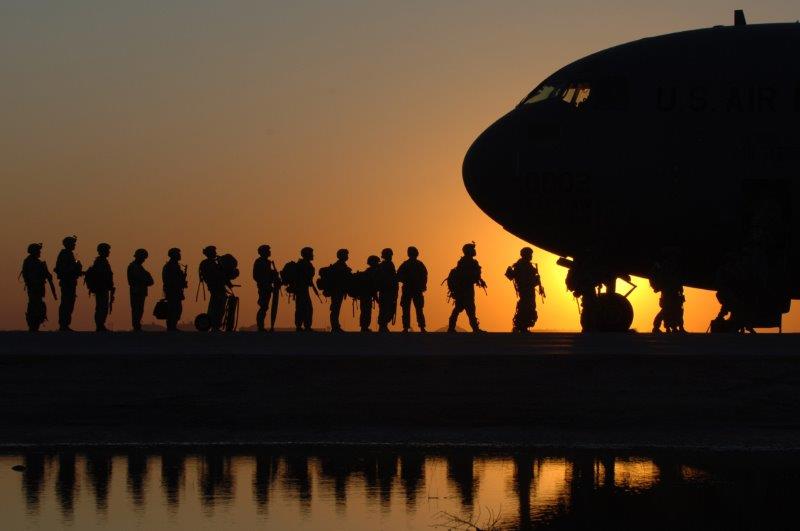When an emergency strikes, most people think of police, firefighters, EMTs, and paramedics as the first on the scene. These brave men and women rush in to provide aid and protection in crisis situations. They are known as "first responders."
But what about nurses? Are nurses first responders? Do these frontline healthcare workers also qualify as first responders?
The role of a nurse is complex. Let's explore what exactly a first responder is, how nurses operate in emergency settings, and whether or not nurses can be considered first responders.
Key Takeaways:
- First responders are the first medically trained personnel to arrive and give care at an emergency scene. Police, firefighters, EMTs, and paramedics are common examples.
- The primary role of nurses is to provide medical care in hospitals, clinics, and other healthcare facilities. Most do not respond to outside emergencies.
- In limited situations, such as a mass casualty incident, nurses can be called upon to act as first responders when resources are scarce.
- Differences in training, work locations, and scope of practice differentiate nurses from typical first responder roles like EMTs and paramedics.
- While nurses play a critical role in emergency medical care, they are not considered first responders in most situations.
Now, let's explore this complex topic in more detail.
Definition of First Responders
So who exactly qualifies as a first responder?

According to the U.S. Department of Homeland Security, first responders are:
"Individuals who in the early stages of an incident are responsible for the protection and preservation of life, property, evidence, and the environment."
More specifically, first responders refer to the first medically trained personnel on the scene of an emergency. They provide immediate basic medical assistance until more advanced care arrives.
Police officers, firefighters, EMTs, paramedics, and emergency dispatchers typically fall under the first responder umbrella.
Let's look at a few of these common first responder roles:
Police Officers
Law enforcement officers often act as first responders, responding to 911 calls for accidents, crimes in progress, fires, medical emergencies, and more. Part of their job is administering emergency first aid until an ambulance arrives.
Firefighters
Firefighters are on the front lines of fires, vehicle collisions, and medical emergencies. They are trained to provide first aid, CPR, and basic medical care at emergency scenes before transporting victims to the hospital.
Emergency Medical Technicians (EMTs)
EMTs are trained specifically in emergency medical services. They respond to 911 calls, perform critical interventions like CPR and defibrillation, and transport patients by ambulance to the hospital. EMTs bridge the gap between a medical emergency and more advanced hospital care.
Paramedics
Paramedics have the highest level of training below a physician. They can provide more advanced medical care on-site, like administering IV fluids and medications, intubating patients, performing electrocardiograms, and more.
Now that we've established who first responders are, let's look at the role nurses play in emergency situations.
The Role of a Registered Nurse in Emergencies

Nurses make up a critical piece of our healthcare system. Their primary role is centered within hospitals, clinics, doctors offices, and other healthcare facilities.
Most nurses are not considered first responders who rush to emergency scenes. However, nurses do respond quickly to health emergencies in their workplace. And in certain situations, a nurse may provide emergency care in unconventional settings.
Let's explore some common nursing roles in emergencies:
Emergency Room Nurses
Emergency room (ER) nurses work in hospital emergency departments. They are usually the first medical professionals that patients encounter when entering the ER.
Emergency room nurses triage patients, take medical histories, provide treatment, monitor conditions, and stabilize patients until a physician can take over care. They are trained to make rapid critical decisions in urgent patient care scenarios.
While ER nurses respond quickly to health emergencies, they only treat patients who come into the hospital. For this reason, they are not classified as first responders who work outside healthcare facilities.
Critical Care Nurses
Critical care nurses work in hospital intensive care units (ICUs) and trauma centers. They treat patients with life-threatening conditions who need constant medical monitoring and intensive treatment.
Like ER nurses, critical care nurses provide rapid emergency care - but only once a patient arrives at their unit in the hospital. So they do not qualify as first responders.
Did You Know: As nurses are not first responders, they typically don't qualify for first responder discounts. However, during COVID-19, these discounts were commonplace as companies sought to give back to the people who helped to treat and vaccinate millions of Americans.
Flight Nurses
Flight nurses are a special category of nurses who work on helicopters or airplanes to transport critically ill or injured patients by air. They can provide medical care en route from an emergency scene to a hospital.
Because they travel to the site of emergencies and are sometimes the first medical care available, many flight nurses are considered first responders. However, normal ground or air ambulance EMTs and paramedics perform the initial first responder duties.
Now that we've seen how nurses operate in emergency settings, let's look at some instances where they could potentially act as first responders.
When A Mass Casualty Incident Calls Nurses to First Responder Duty

Though not common, there are some situations where nurses need to provide emergency medical care before an EMT or paramedic arrives. In these cases, nurses essentially act as first responders.
Two examples of when this could occur are:
Mass Casualty Incidents
Mass casualty incidents (MCIs) are situations where the number and severity of injuries far exceeds available emergency medical resources. Disasters like earthquakes, hurricanes, mass shootings, large transportation accidents, and terrorist attacks can create MCIs.
During an MCI, nurses can also be called upon to administer urgent medical care alongside EMTs and paramedics until transportation and resources are available. When patient needs outweigh personnel, nurses help fill the gap as emergency first responders.
Limited Emergency Situations
In limited instances, a nurse might be required to utilize their medical skills prior to an EMT's arrival. For example, if a nurse witnesses a severe car accident or heart attack at a public location, they may assist until first responders arrive.
However, this scenario would be an exception rather than the rule. Nurses do not typically carry emergency medical equipment or have rapid access to the scene. So their capacity to act as a "layperson first responder" is limited.
The decision to provide medical care would be at the individual nurse's discretion based on the severity, their skills, and whether they have any protective equipment available. Off-duty nurses have no formal obligation to act as first responders.
Now that we've seen when nurses might perform first responder duties, let's look at how nurses differ from typical first responders like EMTs and paramedics.
Key Differences Between Nurses and First Responders
While nurses and first responders both provide medical care, there are some important distinctions between these roles:

Training and Certification
First responders like EMTs and paramedics complete dedicated training in emergency medical services. This includes certifications in emergency response tactics, administering pre-hospital care, using lifesaving equipment, hazard precautions, and more.
Nurses complete extensive medical training, but with a focus on providing care in healthcare settings under a physician's supervision. Nurse training does not encompass the full scope of pre-hospital emergency medical care.
That said, some nurses pursue additional certifications like ACLS, PALS, and TNCC which provide advanced emergency training. But this is not a requirement for licensure.
Work Locations
As discussed earlier, first responders regularly work "in the field" at emergency scenes before transporting patients to a hospital.
Nurses primarily work inside hospitals, clinics, and other healthcare facilities under controlled conditions. They have access to doctors, extensive medical equipment, and full teams of staff - resources that first responders lack when treating patients in the field.
Scope of Practice
The scope of practice for first responders like EMTs and paramedics focuses on pre-hospital emergency care and techniques like administering oxygen, performing CPR, dressing wounds, immobilizing fractures, and more.
The scope of practice for nurses is much broader. In addition to foundational emergency skills, registered nurses can provide wound care, complex medication administration, IV therapy, disease treatment, and comprehensive care planning for patients over longer periods of time.
So in summary, while nurses and first responders both aim to save lives, nurses are specifically trained for providing care in medical facilities rather than emergency field work.
Conclusion: Are Nurses First Responders?
While nurses are critical frontline healthcare workers, most do not meet the criteria to be classified as "first responders."

First responders arrive first on the scene of medical emergencies to provide initial stabilizing care until transportation to the hospital. Police, firefighters, EMTs, and paramedics make up the bulk of first responders.
Nurses instead focusing on providing emergency and ongoing medical care in hospitals, clinics, and other healthcare settings. In rare mass casualty or unconventional situations, a nurse may be called upon to utilize their skills prior to an EMTs arrival - but this is an exception.
Differences in training, work locations, and scope of practice differentiate nurses from EMTs, paramedics, and other first responder roles.
So in summary - nurses are not typically categorized as first responders. But their life-saving skills both in and out of healthcare facilities play an equally crucial role in the emergency medical field.
Frequently Asked Questions
Are ER nurses considered first responders?
No. While ER nurses work in hospital emergency rooms and urgently treat patients, nurses are not first responders since they are not first to arrive on-site to medical emergencies.
What's the difference between an EMT and a nurse?
EMTs complete dedicated training to provide pre-hospital emergency care on-site and en route to the hospital. Nurses undergo broader medical training to provide emergency and ongoing care in healthcare settings under physician oversight.
Would a nurse qualify for a first responder discount?
Sometimes. While nurses don't qualify as first responders, some businesses extend discounts to all medical professionals including nurses, doctors, hospital staff, and medical administrators.
Can an off-duty nurse act as a first responder?
Potentially. If an off-duty, non-EMS affiliated nurse encountered a severe medical emergency, they could choose to assist to the best of their abilities until professional first responders arrive. However, they are neither obliged nor always equipped to act as a first responder while off-duty.
Are paramedics considered nurses?
No. Paramedics have specialized emergency medical training focused on pre-hospital care. Registered nurses undergo different training and provide a wider scope of practice focused on both emergencies and ongoing care in medical facilities.
Who typically arrives first to an accident scene?
Depending on the nature of the accident, first responders like police, firefighters, or EMTs/paramedics typically arrive first on-scene to address immediate safety concerns, provide emergency care, and transport patients to the hospital as needed.
Can nurses act as first responders during a mass casualty incident?
Yes, during a mass casualty incident where the number of patients exceeds available emergency personnel, nurses may be called upon to help triage, stabilize, and treat patients alongside other first responders like EMTs and paramedics.
Their medical skills can be leveraged to help fill the gap in emergency care during a mass casualty event. However, they would be acting as supplementary first responders only for the duration of the incident.
Did nurses act as first responders during the COVID-19 pandemic?
No, nurses were not considered first responders during the COVID-19 pandemic. They provided critical frontline medical care in hospitals, clinics, and dedicated treatment facilities. However, EMTs, paramedics and other specialized first responders were still the personnel responding to emergencies outside of healthcare facilities.
Are nurses considered first responders during mass school shootings?
Not typically. Mass school shootings may create mass casualty incidents where emergency resources are overwhelmed. However, EMTs, paramedics, police officers, and SWAT medics would still be the designated first responder roles arriving on-site. Nurses from nearby hospitals may be called to help treat the influx of patients, but only in a supplementary capacity during the immediate aftermath.











